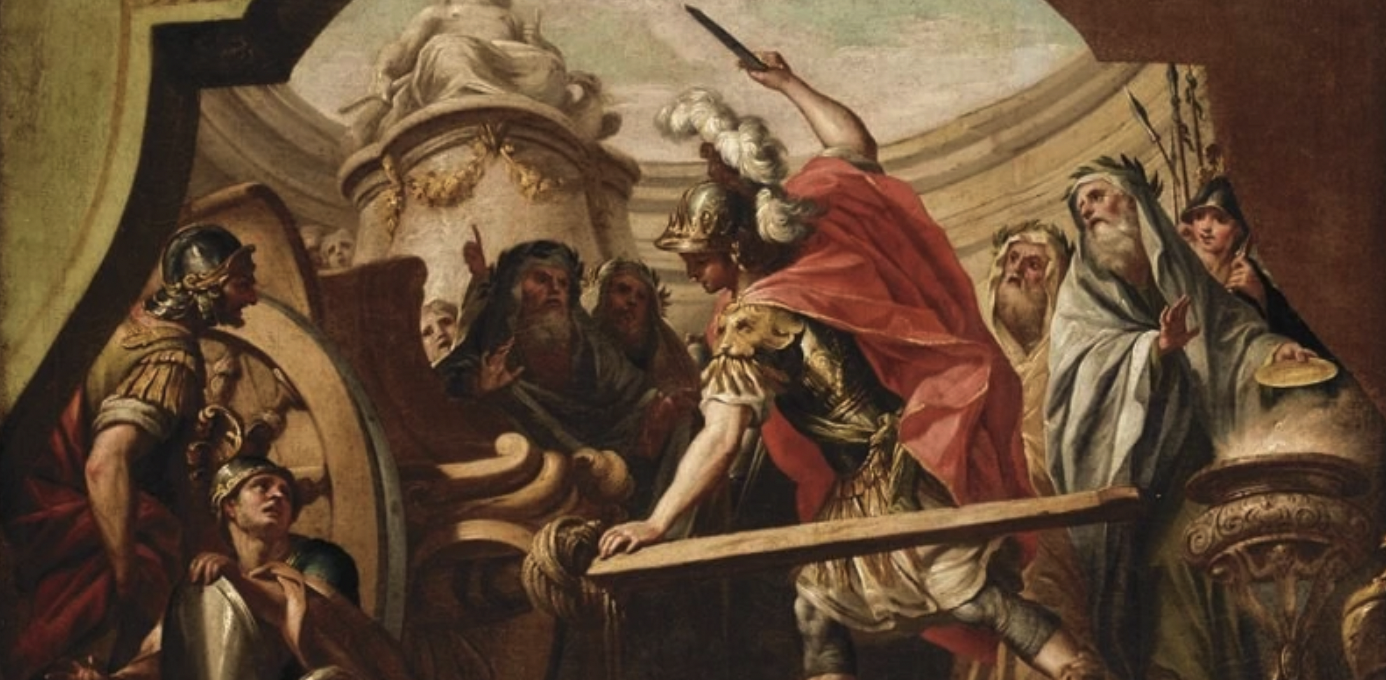categories
All Categories
- Bitcoin
- Centralised Exchanges
- Crypto
- Crypto Asset Volatility
- Crypto Correlations
- Crypto Governance
- Crypto in the Portfolio
- Crypto Valuations
- DeFi
- ESG
- Ethereum
- Investment Highlight
- Regulation
- Security and Privacy
- Social Media Influence
- Stable Coins
- Traditional Finance and Crypto
- Uncategorized
- UNSDG
- Web 3.0
Authors
All Authors

Crypto is Cutting the Gordian Knot of a Complex Financial System
by Henrik Andersson
The Gordian Knot is a legend of Phrygian Gordium associated with Alexander the Great. It is often used as a metaphor for an intractable problem (untying an impossibly-tangled knot) solved easily by finding an approach to the problem that renders the perceived constraints of the problem moot (“cutting the Gordian knot”) — Wikipedia
Crypto Assets cut the gordian knot of an increasingly regulated, compartmentalized, balkanized, complex financial system. We think that’s a pretty accurate metaphor for why crypto assets are important.
Before we had crypto assets, individuals had to trust centralised companies, institutions and central banks. Maybe more importantly, in doing business those institutions had to trust other institutions, creating layers of trust with a legal system around it. This has a created financial system that is:
- Increasingly complex. Financial engineering to manage risk between financial institutions and speculators has created an immense level of complexity.
- Opaque. Today, no one has a good grasp of the real state of the global financial system.
- Fragile. The current financial system tends to create great bubbles every 10–15 years with subsequent crashes that affect all of society and that leads to tax payer bailouts of our financial institutions.
Crypto assets can disintermediate the trusted third parties — it not just improves the current system but it can completely cut the gordian knot.
Here is the most simple example we can think of — how the gordian knot is cut in an international bank transfer:

From Apollo’s Educational Deck.
In the latest financial crisis of 2008, undetected derivatives exposure lead to the collapse of the financial system and too big to fail financial institutions had to be bailed out by tax payers. That event ironically lead to even more complexity. The Economist notes in an article ‘Too big not to fail’ that: ”The law that set up America’s banking system in 1864 ran to 29 pages; the Federal Reserve Act of 1913 went to 32 pages; the Banking Act that transformed American finance after the Wall Street Crash, commonly known as the Glass-Steagall act, spread out to 37 pages. Dodd-Frank is 848 pages long.”
Dodd-Frank created more agencies to overlook the system, more regulation and more complexity, more lawyers and more ways to game the system:

The every increasing complexity of the financial system.
The red tape of Dodd-Frank is in stark contrast to the Open Financial System. We have seen the first glimpses of new financial primitives built on open blockchains, so far mostly on Ethereum. Credit, lending, derivatives markets open to anyone, anywhere. These new crypto powered systems are:
- Open and transparent. The rules are coded in software. There is no ambiguity about the state of the system.
- Permissionless. Open to anyone, anywhere. A mobile phone and Internet connection is all that is needed for access, no red tape.
- Unstoppable. Transactions are uncensorable and have the reach of the Internet.
In addition, since these system are open source, and powered by crypto assets, the stakeholders are more distributed and the financial upside obtainable outside of Wall Street insiders.
Modern society has greatly increased the ability to organise humans on a greater and greater scale. But this social scalability has come at a cost of greater and greater complexity. Crypto networks solves this complexity problem of social scalability. Bitcoin created money seperate from the state. Bitcoin has global reach, without having to trust a third party. Now, other financial infrastructure is being recreated, seperate from financial institutions and the complexity of what Nick Szabo calls ‘wet code’.
Building a better financial system is an exciting future which will play out over the coming decade and that we want to be part of.